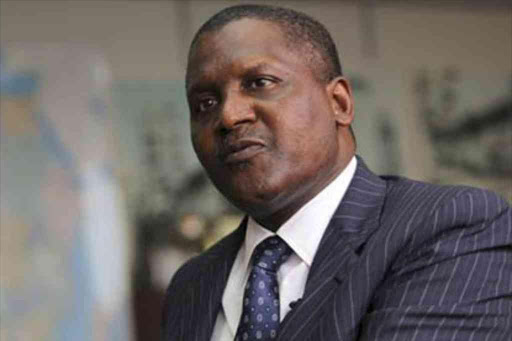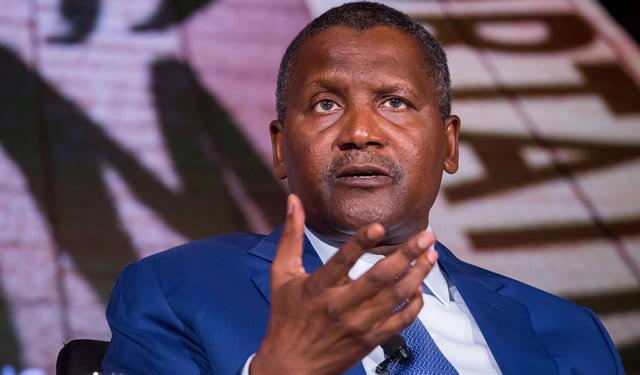Aliko Dangote, Africa’s richest man, has surprised many by revealing that he does not own a house outside Nigeria. Despite his immense wealth and success, Dangote prefers to keep his residences within the country, owning homes only in Lagos and his hometown of Kano. When visiting the capital, Abuja, he opts to rent an apartment.
Dangote, who has been listed by Forbes as Africa’s richest man for the 13th consecutive year as of January, saw his net worth increase by $400 million over the past year, reaching a staggering $13.9 billion. Known for his ventures in cement, sugar, and more recently, an oil refinery in Lagos, the 66-year-old business magnate shared his reasons for not owning properties abroad during a speech at the Dangote Petroleum Refinery.
His stance has raised eyebrows, particularly among Nigeria’s wealthy elite, who often own luxurious properties in cities like London, Dubai, and Atlanta. However, Dangote’s explanation sheds light on his dedication to the growth and industrialization of Nigeria.
“The reason I don’t have a London or America house is solely because I wanted to focus on industrialization in Nigeria,” Dangote stated. “I am very passionate about the Nigeria dream, and apart from my Lagos house, I have another one in my home state, Kano, and a rented one in Abuja.”
Dangote emphasized that owning multiple houses abroad would distract him from his mission to contribute significantly to Nigeria’s development. “If I have houses all over, in America and co, I would not be able to concentrate and build something for my people,” he added.

Dangote’s commitment to Nigeria extends beyond his business ventures. He owns an opulent residence in Lagos’ exclusive Banana Island, which is home to many high-profile Nigerians. In contrast, his house in Kano is more modest and was used to host guests following the death of his brother, Sani Dangote, in 2021.
Also, read; Meet The Brothers Who Created an Alphabet to Preserve Language and Culture Across West Africa
Public reactions to Dangote’s comments have been mixed, with some praising his decision as a prudent business move. Social media has been abuzz with discussions, with many noting that renting can be more economical than owning multiple properties.
Public affairs analyst Sani Bala lauded Dangote’s approach, saying, “Nigerians need to be re-oriented to understand owning several mansions is not an achievement when the money would be needed elsewhere. Dangote said he sold his house in London in 1996, and I am sure the monies realized from the sale were put back in his business – that is the way to go,” Bala remarked, as reported by BBC.
Dangote’s example is seen by some as a call for Nigeria’s wealthy elite to reconsider their priorities and focus more on investing in the country’s growth rather than in luxury properties abroad. His dedication to the “Nigeria dream” and his focus on industrialization underscore his long-term vision for the country’s development.
In an era where material wealth is often equated with success, Dangote’s approach serves as a reminder of the importance of reinvesting in one’s home country. His decisions not only reflect his personal values but also set a standard for others in positions of wealth and influence. As Nigeria continues to face economic challenges, Dangote’s commitment to the country’s growth and industrialization offers a powerful message about the potential impact of focused and patriotic investment.

